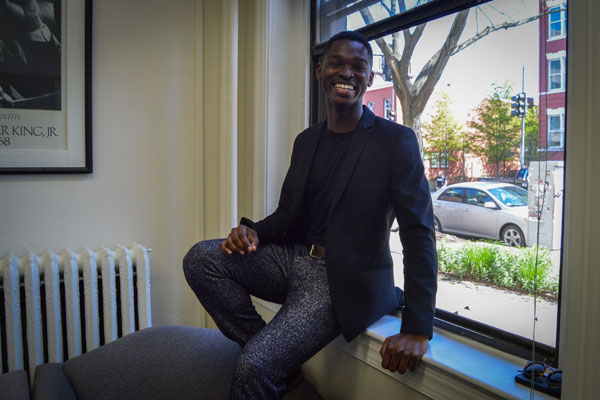Leaders from black student organizations formed a council to address issues black students face at GW.
The GWU Black Leadership Council, which was announced earlier this month, will bring together five black student organizations to coordinate programing and advocate for the black students on campus. The organizers said the group will improve the “black experience” at GW, address low retention and graduation rates of black students, advocate for more academic resources and support the officials’ efforts to bring more black students to GW.
The council is made up of members from the Black Student Union, the Black Men’s Initiative, the Black Women’s Forum, ACE Magazine and the George Washington Williams House.
Potential members of the council would only have to pay dues for one group to become members of all five sub-organizations, Tai’Lon Jackson, the event and planning chair of the Williams House, said.
The group, the first of its kind at GW, was created after multicultural student leaders rallied in support of changes at the University of Missouri last fall and advocated for more diverse student leadership in the SA.
Kyle Hanna, a junior and the founder of the Black Leadership Council, said the group plans to meet once a week to unite black student organizations on campus and create committees to solve problems that impact black students.
“The Black Leadership Council was founded with the bottom line goal of building community,” Hanna said. “A lot of student leaders really believe that the BLC can be used not only to build community, but to improve finances and for other student orgs, student leaders, administrators and off-campus organizations to engage with black students on this campus.”
He said multicultural student leaders came up with the idea during a retreat last August. The idea for the council was inspired by a black umbrella organization at the University of Pennsylvania called UMOJA, a Swahili word for “unity,” Hanna said. The GW group will start meeting in the fall.
“A lot of black students on campus were missing basic support. I was one of them,” Hanna said. “Me not knowing what resources were available to me, it made my first year here very difficult.”
The council will work to coordinate events between its five member organizations to host collective events and initiatives, Hanna said. Committees in the council will cover topics like academics and student life.
Hanna added that the council plans to include more black student organizations in the future. He said in the past that multicultural, and specifically black, student organizations would only collaborate if their leaders were friends with one another, which kept the community from working together effectively.
Michael Tapscott, the director of the Multicultural Student Services Center, said staff in the center encourage students to identify areas of “improvement and opportunity” to “effect change they believe in.”
“We are proud to support student-led efforts, including those focused on recruitment and retention, and believe they can complement the University’s robust initiatives in these areas,” he said.
Tapscott declined to comment on how the MSSC would directly collaborate with the council.
Dwayne Taylor, the president of the Black Men’s Initiative, said the council wants to create more multicultural celebrations because most of GW’s current diversity events only highlight the diversity of incoming students.
“I know GW preaches a lot about diversity, like when you go to a basketball game, they’re always saying ‘we have five students from this or that region,’” he said. “But a lot of multicultural events should celebrate more than just promotion for people to come to the school.”
GW has prioritized increasing the diversity of its student body over the last several years, and this year officials have turned their attention to ensuring those students can graduate on time. GW also switched to a test-optional admissions policy last summer in an effort to attract more minority students.
Students voted eight students who were endorsed by the multicultural community into the Student Association Senate last month after multicultural student organizations called for more diverse representation in student leadership.
Leslie Ogu, the former president of the Black Student Union, said microaggressions – statements or actions perceived as offensive, though usually not intended to be – are a continuing problem for black students that impact daily life on a predominantly white campus.
“It’s not about students get physically hurt, but about how they were treated in the classroom or walking on the street,” he said. “It may not be as visible as it used to be, but it’s still there, so I see the BLC as an opportunity for black organizations to be unified on the front to tackle different issues.”







